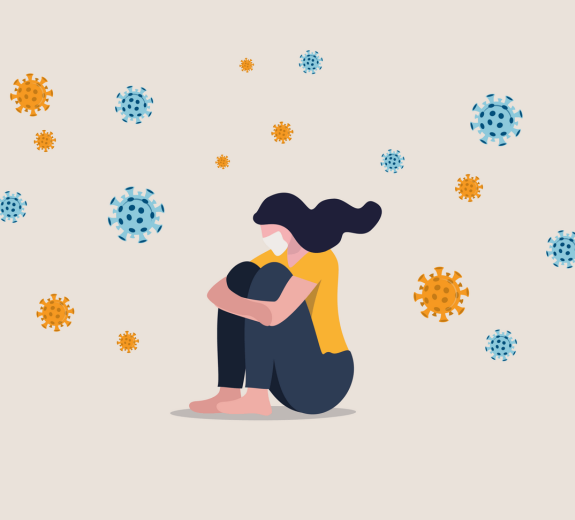Q: Restaurants, salons and other businesses are open in some states. Is it really safe to patronize them?
A: In general, I would say the greatest risk for infection is in enclosed, crowded spaces, so continue to avoid those as much as possible. Dining on a patio with few other people is much safer than being inside a crowded restaurant.
If you want to get together with a friend, try to do it outdoors. In terms of work, if you can continue to effectively work from home, it's safest to do so. If you do need to go to your workplace, maintain distance from others and try to avoid having too many people there at once.
If you need to commute, there are many ways to reduce your risk: Walk, bike or drive yourself instead of taking public transportation. If that’s not possible, try to take transit at off times when it's less crowded. Always wear your mask, avoid touching surfaces and sanitize your hands as soon as possible after your commute.
Q: What steps should we continue to take to protect our communities from the virus?
A: I encourage people to continue to take the steps we’ve been taking all along: Wash your hands frequently, maintain physical distance and stay home if you’re sick.
Masks are also very important: The media has put a lot of emphasis on masks protecting others, but if you’re masked, you’re also protecting yourself to a great extent because you’ve got a layer in front of your face that would prevent droplets from coming right into your nose or your mouth. Making sure your mask fits well and that you’re wearing it correctly is also crucial. It should cover your mouth and nose and fit snugly on your face.
Some people have been wearing gloves, but gloves can lead to a false sense of security: You touch surfaces because you’re wearing gloves, but then you forget and touch your face. I'm not a big fan of gloves, it's more important to sanitize your hands frequently.
Q: Should people with autoimmune diseases and other pre-existing conditions continue taking extra precautions?
A: Early on, we were not sure how the disease was going to impact patients with autoimmune diseases. More and more data has shown that perhaps COVID-19 is not much more severe in people with autoimmune disease, which is good news. That doesn’t mean you shouldn’t continue to be careful. We’re continually learning more about how the virus interacts with autoimmune diseases.
While those with type 2 diabetes are at a high risk of complications from COVID-19, this has not been observed in those with Type 1 diabetes, unless it is poorly controlled. Other conditions associated with a higher risk of complications include chronic lung conditions, chronic heart disease, chronic kidney disease and obesity. Older age is also a big risk factor. I would encourage these people to continue being extra cautious.
This might mean staying one or two phases behind as counties start opening up. So, if the state says you’re allowed to gather with five people, maybe just gather with one or two who are also taking extra precautions. Sit outside, far away from each other, and wear masks. This way, we can start to interact but modify the experience to stay as safe as possible.
Q: Should I get tested for COVID-19? What role does virus testing play as we move forward?
A: If you develop symptoms that suggest COVID-19 or if you have been exposed to someone with COVID-19, contact your healthcare provider and ask about getting tested for the virus.
If the test is positive, that information may help you plan your activities so you can take extra precautions to prevent exposure to others around you. Additionally, it will keep you on alert for any warning symptoms of worsening disease such as shortness of breath. Your provider may counsel you about monitoring your temperature and oxygen status.
Testing allows the health department to know where the infections are, how many infections there are, and where we need to be in terms of closing or opening businesses. If the infection rates are very high and we don't start closing again, the virus will overwhelm hospitals.
Testing is also important for this virus in particular, because people can have the virus but not show symptoms. They may also be particularly infectious for a day or two just prior to developing symptoms. This means people can spread the virus without knowing it. If we know who has the virus, where they are, and who they’ve interacted with, the virus is much easier to contain. This also reaffirms the need for all of us to mask and maintain social distance to control the pandemic.
Q. What about antibody tests? Should I get an antibody test?
A: As opposed to virus testing, in general we do not recommend antibody testing. Antibody testing is meant to tell you if you’ve been previously infected with COVID-19. The majority of tests currently available lack sufficient accuracy. Furthermore, we don’t yet know if folks who test have antibodies for COVID-19 are protected against future infections. So in the end information from the test may be neither accurate nor helpful.
Q: What counts as “exposure” to the virus?
A: We don’t have a magic number, but we say “exposure” means someone who has been within six feet of someone with COVID-19 for over 15 minutes.
Q: Some businesses are collecting people’s contact information for “contact tracing.” What is contact tracing and why is it important?
A: Contact tracing helps us know who is sick, where they’ve been, and informs people if they’ve been in contact with someone who is sick.
When someone tests positive for COVID-19, the health department can notify anyone who has been in contact with this person in the past two weeks. The identity of whoever is sick is confidential.
Contact tracing is very important because it means you know if you might have been exposed and can seek treatment if you need it. It also helps others who may have been exposed know and take necessary precautions instead of spreading the virus further.
Q: How do we know when the pandemic is really over?
A: The health department is monitoring the situation very closely. We know when the virus peaks and plateaus. Over time, we’ll see the number of positive tests and hospitalizations go down. At some point your county will say ‘we’ve had no new cases in two weeks or four.’ There may be a sprinkling of cases here and there because people travel. It will be a gradual process, but just like this pandemic showed up in our laps, one day it will be over.




